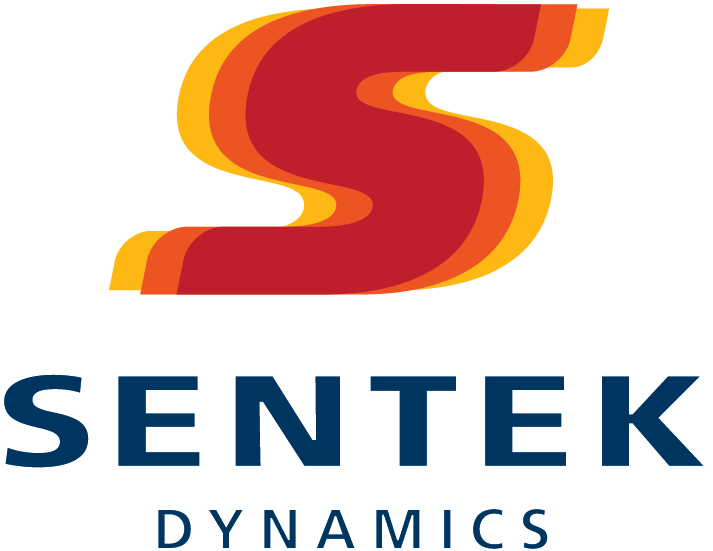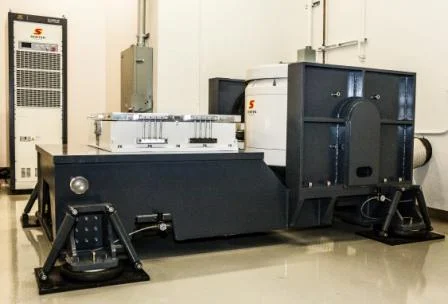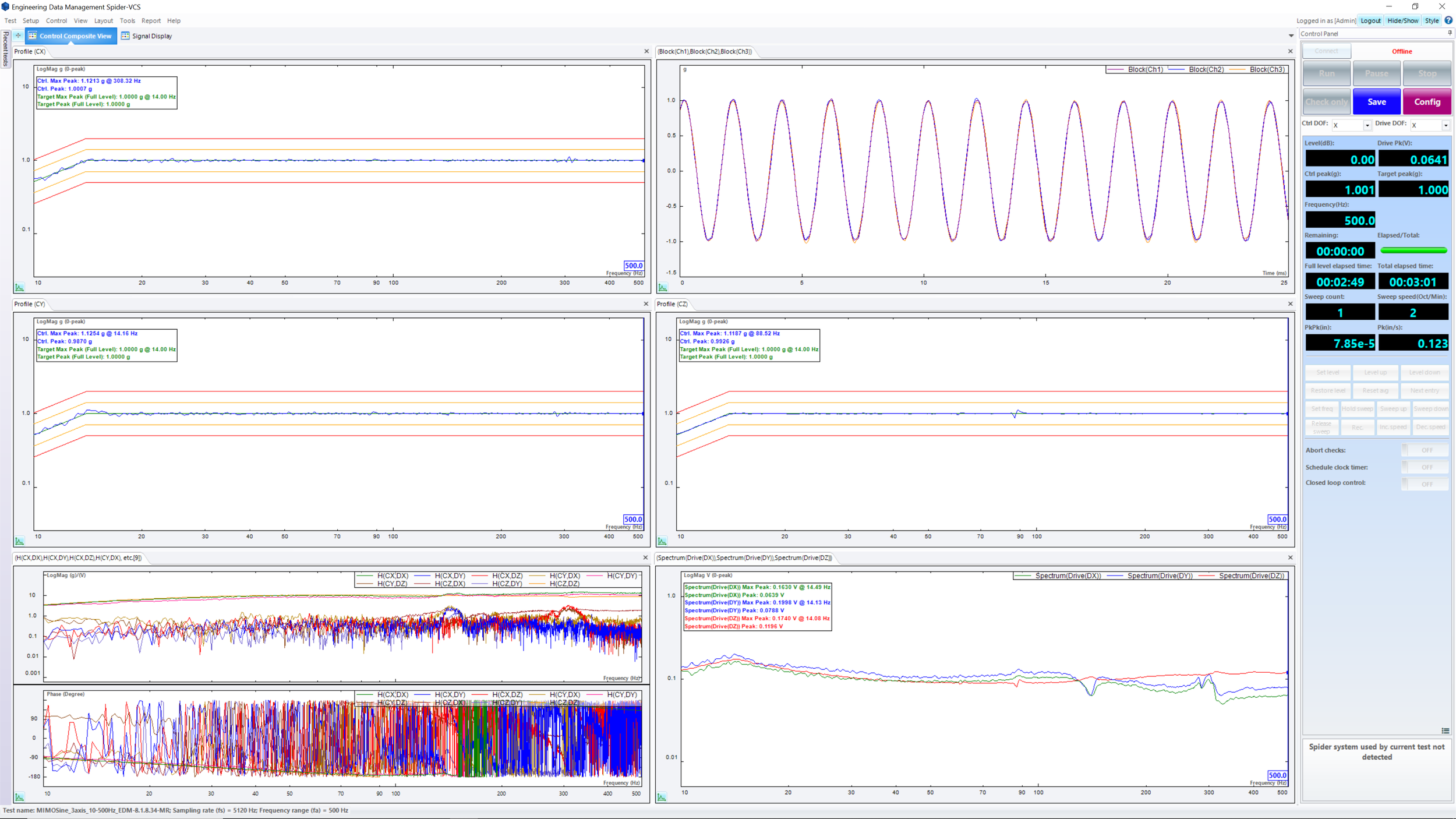Multiple-Input Multiple-Output (MIMO) vibration testing has increased in popularity as a result of the development of multiple shaker table systems and the availability of MIMO vibration controllers. The readiness of standards such as Mil-STD 810G Method 527 and the IEST DTE 022 Working Group Recommendation have also contributed to the huge momentum MIMO testing has gained in the past decade. Military and defense manufacturers are not the only industries adopting multiple shaker testing. Manufacturers in aeronautic, space, automotive, and the commercial electronics industries are also benefiting from the advantages of multiple shaker testing systems.
Manufacturers offer many different types of multiple shaker tables. Among these, the three-axis shaker table is a commonly used configuration. The following is a photo of Sentek Dynamics MA-1000-4H three-axis shaker system.
Figure 1. MA-1000-4H Three-Axis Shaker System (Photo courtesy of Sentek Dynamics)
Crystal Instruments’ Spider MIMO vibration control system takes use of multiple shakers and assigns each of the multiple control channels with a defined profile. The control process of MIMO vibration control is expanded into an advanced Matrix fashion in contrast to the Scalar style used by single shaker control.
MIMO Sine Control can control the phase between shakers or between axes. By maintaining a multi-dimensional system matrix, the Spider system is always capable of determining the contribution from each shaker to the overall response and properly differentiating it for each shaker so that proper, accurate, and safe control is assured for the user.
The MIMO sine test produces the sine wave with one control per profile. The same quality of control offered by Crystal Instruments’ single shaker random control is inherent to MIMO sine control. The multi-resolution pretest implemented for MIMO sine provides enhanced control results which not only improves the control accuracy, but also helps by expanding the controllable frequency range. With the multi-resolution for pretest option enabled, the pretest will run to cover the whole frequency range per profile and then will run again with the lower frequency band (e.g., 1/4th of the total frequency range). With this arrangement, the lower portion of the frequency range will have a better frequency resolution for the identified FRF matrix. This will help improve the control accuracy of the test, especially when the sweep of the sine control test runs logarithmically.
The tests discussed here were carried out on the aforementioned Sentek Dynamics three-axis shaker system. Multiple MIMO sine tests were carried out to illustrate the effect of the multi-resolution method on the MIMO sine pretest.
Typical MIMO sine test with up to 500 Hz frequency range
MIMO sine test using multi-resolution pretest, with up to 500 Hz frequency range
MIMO sine test using multi-resolution pretest, with up to 1500 Hz frequency range
To compare, first the typical MIMO sine test with up to 500 Hz frequency range is devised and carried out. The following screenshot of the test displays MIMO sine control running efficiently and with great control accuracy.
Figure 2. MIMO Sine, 500 Hz
It is a typical MIMO sine test and the control results from all three axes are excellent.
The same 500 Hz test is carried out again with the multiple resolution pretest option enabled. The following are the control results.
When comparing the control signals from each of the axes, it is obvious that this test controls better.
Now we shall move on to the wide frequency range MIMO sine test. This time, the upper frequency of the test is set to 1500 Hz. The control result is quite good.
The above results confirm that the multi-resolution pretest method improves the control accuracy of the MIMO sine test and also helps expand the controllable frequency range.
Find more details about Sentek Dynamics’s three-axis shaker systems at:
https://www.sentekdynamics.com/three-axis-system-shakers
Visit the following link for more details about Crystal Instruments’ newly released MIMO vibration control system: https://www.crystalinstruments.com/multiple-input-multiple-output-mimo-vibration-control-system/





